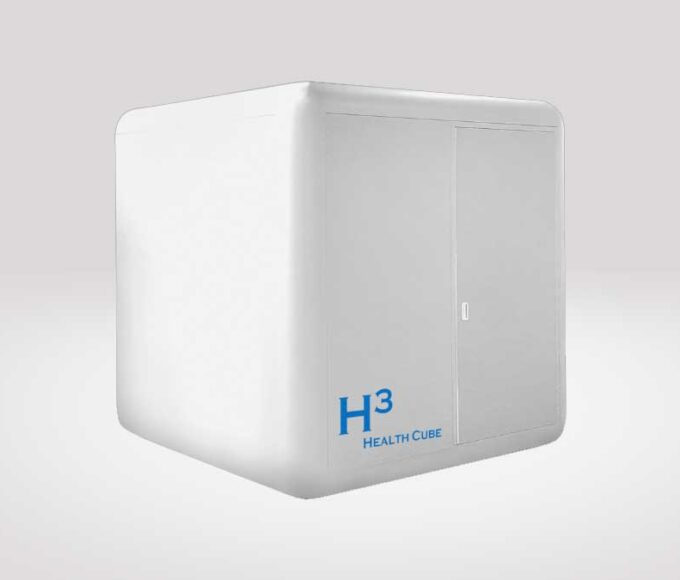- Home
- Billionaires
- Investing Newsletters
- 193CC 1000
- Article Layout 2
- Article Layout 3
- Article Layout 4
- Article Layout 5
- Article Layout 6
- Article Layout 7
- Article Layout 8
- Article Layout 9
- Article Layout 10
- Article Layout 11
- Article Layout 12
- Article Layout 13
- Article Layout 14
- Article Sidebar
- Post Format
- pages
- Archive Layouts
- Post Gallery
- Post Video Background
- Post Review
- Sponsored Post
- Leadership
- Business
- Money
- Small Business
- Innovation
- Shop
Recent Posts
Cancer Treatment’s New Hope: Checkpoint Inhibitors

Two decades ago, patients with aggressive cancers faced grim prognoses, as treatment options were limited. However, a paradigm shift occurred with the introduction of novel immunotherapies, particularly checkpoint inhibitors, which have emerged as a beacon of hope in cancer treatment. Among these, a class of drugs known as checkpoint inhibitors has shown remarkable efficacy, with the FDA’s approval in 2011 for melanoma treatment marking a significant milestone.
The mechanism of action of checkpoint inhibitors capitalizes on the body’s natural defense mechanism against cancer. The immune system is equipped with “off switches” called immune checkpoints, which serve to modulate the activity of white blood cells, preventing them from becoming overly aggressive. These checkpoints play a crucial role in preventing toxic shock and autoimmune diseases. However, cancer cells exploit these checkpoints to evade detection and destruction by the immune system.
Checkpoint inhibitors work by blocking these immune checkpoints, effectively releasing the brakes on the immune system and allowing it to recognize and attack cancer cells. In essence, they restore the immune system’s ability to mount an effective response against cancer.
The journey to the development of checkpoint inhibitors has been long and arduous, spanning several decades of research and discovery. Scientific interest in the immune system dates back to the early 1900s, but it was not until the late 20th century that significant breakthroughs were made. Key discoveries, such as the identification of T cells in 1967, dendritic cells in 1973, and natural killer cells in 1975, laid the groundwork for the subsequent research into immune checkpoints in the 1980s and beyond.
Present-day checkpoint inhibitors target two main immune checkpoints: cytotoxic T-lymphocyte antigen 4 (CTLA-4) and programmed cell death protein 1 (PD-1). The discovery of these checkpoints was the result of collaborative efforts by multiple research groups. James Allison and Tasuku Honjo were awarded the Nobel Prize in Physiology and Medicine in 2018 for their pioneering work on CTLA-4 and PD-1, respectively.
The first breakthrough in checkpoint inhibitor research came in 1987 when Pierre Goldstein and colleagues identified CTLA-4 as an immune checkpoint protein on mouse T cells. Subsequent studies in the early 1990s revealed that CTLA-4 negatively regulates T cell activity, providing the rationale for developing CTLA-4 checkpoint inhibitors.
Clinical trials for CTLA-4 checkpoint inhibitors began in 2000, leading to the development of ipilimumab, the first FDA-approved checkpoint inhibitor, in 2011. Similarly, the discovery of PD-1 as an immune checkpoint protein in the 1990s paved the way for the development of anti-PD-1 checkpoint inhibitors, which have shown remarkable efficacy in clinical trials and have been approved for various cancers.
In conclusion, the development of checkpoint inhibitors represents a major breakthrough in cancer treatment, offering new hope to patients with previously untreatable cancers. Ongoing research continues to explore ways to enhance the efficacy and safety of these agents, as well as to expand their use to other diseases beyond cancer.
Recent Posts
Categories
- 193cc Digital Assets2
- 5G1
- Aerospace & Defense46
- AI37
- Arts3
- Banking & Insurance11
- Big Data3
- Billionaires449
- Boats & Planes1
- Business328
- Careers13
- Cars & Bikes76
- CEO Network1
- CFO Network17
- CHRO Network1
- CIO Network1
- Cloud10
- CMO Network18
- Commercial Real Estate7
- Consultant1
- Consumer Tech180
- CxO1
- Cybersecurity68
- Dining1
- Diversity, Equity & Inclusion4
- Education7
- Energy8
- Enterprise Tech29
- Events11
- Fintech1
- Food & Drink2
- Franchises1
- Freelance1
- Future Of Work2
- Games141
- GIG1
- Healthcare78
- Hollywood & Entertainment186
- Houses1
- Innovation42
- Investing2
- Investing Newsletters4
- Leadership65
- Lifestyle11
- Manufacturing1
- Markets20
- Media193
- Mobile phone1
- Money13
- Personal Finance2
- Policy567
- Real Estate1
- Research6
- Retail1
- Retirement1
- Small Business1
- SportsMoney33
- Style & Beauty1
- Success Income1
- Taxes2
- Travel10
- Uncategorized8
- Vices1
- Watches & Jewelry2
- world's billionaires418
Related Articles
What Healthcare Can Learn from Nvidia’s Success
The tech industry is undergoing a seismic transformation, with two of its...
By 193cc Agency CouncilDecember 16, 2024Salmonella Triggers Recalls of Costco Eggs and Cucumbers
The recent salmonella outbreak has prompted the recall of two major food...
By 193cc Agency CouncilNovember 30, 2024Bird Flu Found in Raw Milk in California, Recall Issued
California health authorities have confirmed the presence of the bird flu virus...
By 193cc Agency CouncilNovember 25, 2024UniDoc Health Launches Mobile ‘Health Cube’ for Remote Care
UniDoc Health, a Vancouver-based company, is revolutionizing healthcare accessibility with the launch...
By 193cc Agency CouncilNovember 23, 2024















Leave a comment